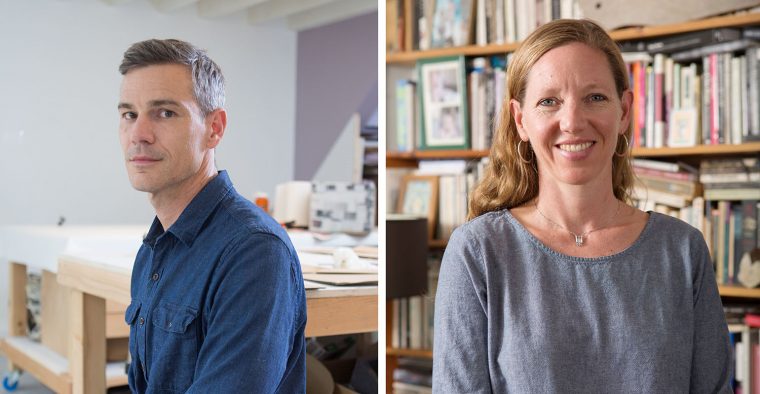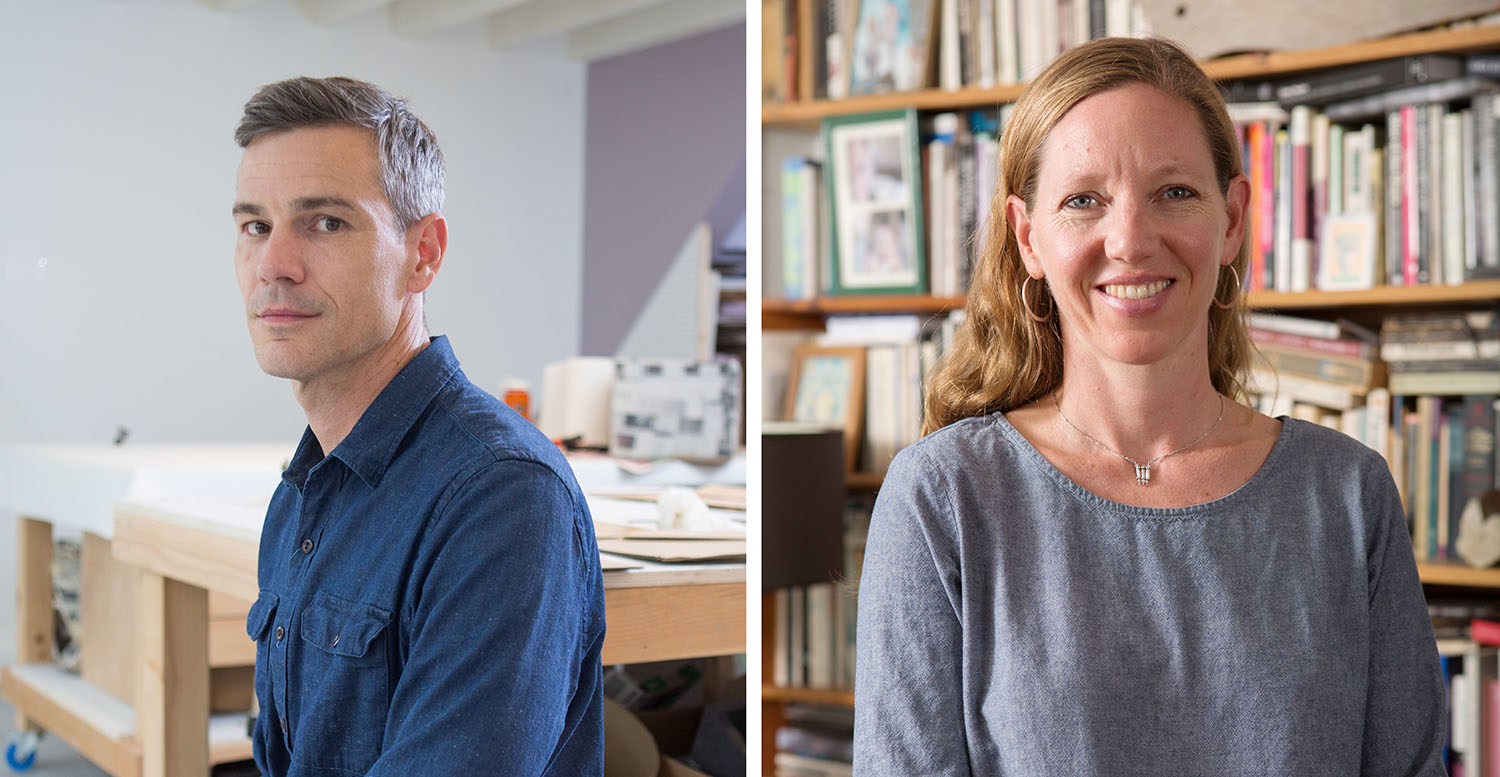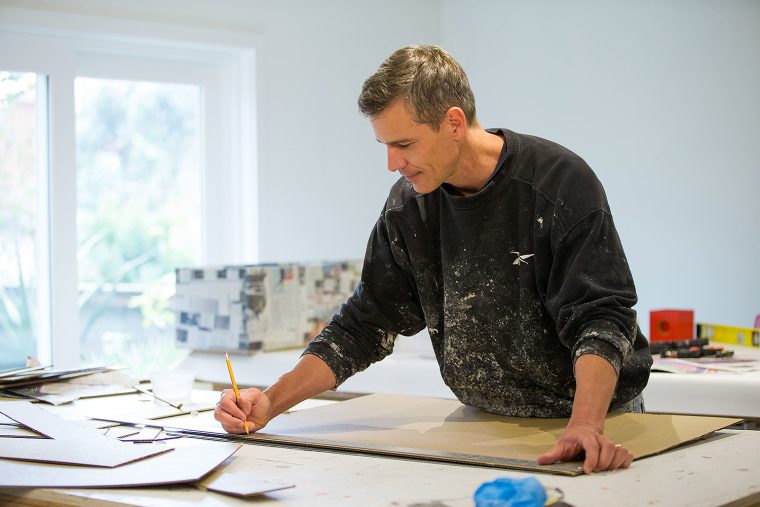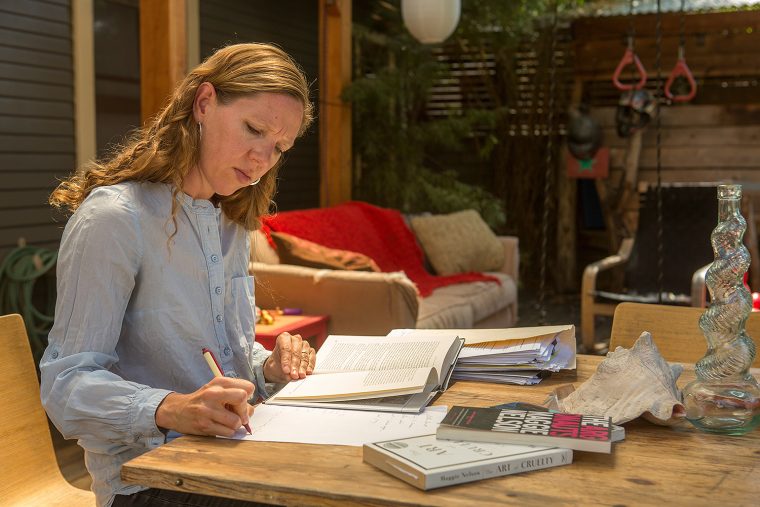Fecteau ’91, Nelson ’94 Recipients of MacArthur Genius Grants


Two Wesleyan alumni are recipients of the 2016 MacArthur Foundation Fellowships, commonly known as the “genius grants.”
Vincent Fecteau ’91 and Maggie Nelson ’94 each received a no-strings-attached $625,000 grant for their exceptional creativity and potential for future contributions to their fields.

They’re among 23 fellows in the country to receive the honor.
“While our communities, our nation, and our world face both historic and emerging challenges, these 23 extraordinary individuals give us ample reason for hope” said MacArthur Foundation President Julia Stasch. “They are breaking new ground in areas of public concern, in the arts, and in the sciences, often in unexpected ways. Their creativity, dedication, and impact inspire us all.”
Vincent Fecteau, a studio arts major, is a sculptor who creates abstract pieces—by hand from simple materials—that encourage careful and concentrated looking and reflection. His slow and meticulous approach to his craft, as well as his experimentation with modes of displaying his work, demonstrates that abstract sculpture is a vital and expressive form of art.
The results are both captivating and demanding; as viewers work to understand what they are seeing, they find themselves at the threshold between visual perception and objective knowledge of three-dimensional space. In this way, Fecteau imbues his work with philosophical content, just as the work assumes psychological dimensions through its uncanny correspondences with the human body. In our age of ever-increasing distraction, Fecteau’s sculpture offers a place for the sustained experience of thought and observation to unfold and flourish.
Maggie Nelson, an English major, is a writer reflecting on the complexities of gender, identity and culture in day-to-day living in works that transcend the divide between the intellectual and the personal. She is creating a new form of nonfiction writing and cultural criticism that examines some of the most pressing cultural issues of our time, such as transgender and queer identity, depictions of violence and femininity. Her work, like her most recent book The Argonauts, represents an empathetic and open-ended way of thinking that offers a model for how even very different people can live together.

In all of her work, Nelson remains skeptical of truisms and ideologies and continually challenges herself to consider multiple perspectives. Her empathetic and open-ended way of thinking—her willingness to change her mind and even embrace qualities of two seemingly incompatible positions—offers a powerful example for how very different people can think and live together. Through the dynamic interplay between personal experience and critical theory, Nelson is broadening the scope of nonfiction writing while also offering compelling meditations on social and cultural questions.
Sculpture artist Jeffrey Schiff, professor of art, and painter Tula Telfair, professor of art, remember having Fecteau as a student. They’re impressed with his “remarkable body of work” that explores the fullness of dimensionality in sculpture.
“His small and medium sized sculptures, usually on pedestals or hanging on the wall, wrap form around space in convoluted tangles, sometimes incorporating objects or photographic images in the mix. The work reminds us of the endless potential mobility of space, while composed of simple non-precious materials,” Shiff says. “In all his work, his touch or hand is in evidence.
At Wesleyan, working with Tula Telfair, Fecteau produced a painting thesis that was, even then, fundamentally sculptural, balancing colorful objects in juxtaposition with each other and the gallery space – each contained in a plastic tailored slipcover. “These sculptures hung a few inches off the wall like paintings – creating shimmery and curiously intimate bubbles that hinted at narratives while remaining purely formal,” Telfair said.
Christina Crosby, professor of English, professor of feminist, gender and sexuality studies, worked with Nelson on her honors thesis, which focused on confessional poetry.
“Maggie’s artistic practice is a demanding one,” Crosby says. “She reports in The Argonauts that she sometimes finds herself laboring ‘grimly’ over her sentences, wondering if any language offers the needful form (52). Her practice makes no claim for emotional transparency (as if one can simply know one’s own, or another’s, emotions). Art can hold open a space in which we – the writer and the reader – don’t know, and in that not knowing can address the world without attempting to know it fully creates possibility. Her artistic practice makes a space for interactions that undo the known landscape, the one covered by cliché. She is open to exploring the sometimes explosive intimacies of the everyday – not every conversation is a happy one –, and she does not hide, conceal, sidestep, or evade what she finds there.”
Wesleyan boasts several other alumni MacArthur Fellows including 1988 recipient Ruth Behar ’77, cultural anthropologist; 1994 recipient Sam-Ang Sam PhD ’88, musician and cultural preservationist; 2005 recipient Majora Carter ’88, urban revitalization strategist; 2009 recipient James Longley ’94, filmmaker; and 2015 recipient Lin-Manuel Miranda ’02, playwright and performer.
In addition, Eiko Otake, visiting artist in dance and East Asian studies, won a MacArthur in 1996; translator/poet/publisher Peter Cole, who worked as a visiting writer and professor at Wesleyan, received a MacArthur Fellowship in 2007; and jazz composer and performer Anthony Braxton, the John Spencer Camp Professor of Music, Emeritus, received the award in 1994.

